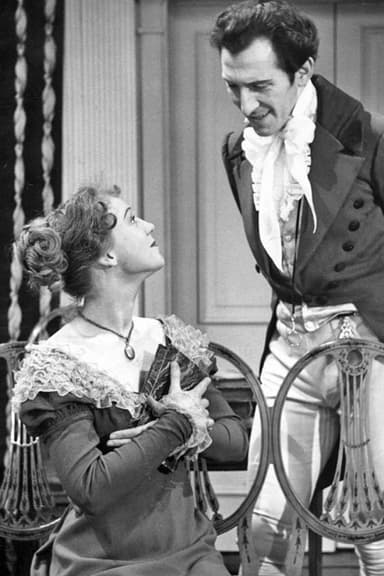
Mansfield Park
1983 • Drama
Mansfield Park is a British six-part television drama serial based on Jane Austen's 1814 novel of the same name. Produced by the BBC and adapted by Kenneth Taylor, it stars Sylvestra Le Touzel as Fanny Price, who is sent to live with her wealthy relatives, the Bertrams, where she is treated poorly by most except her cousin Edmund. Her life is complicated by the arrival of the worldly Mary and Henry Crawford.
Why you should read the novel
Jane Austen’s Mansfield Park is a literary masterpiece that offers readers an intimate window into the world of Regency England, with all its intricate social hierarchies and moral dilemmas. The novel allows you to immerse yourself in the mind of Fanny Price, experiencing her internal struggles and subtle victories in a way no adaptation can fully convey. From the nuanced portrayal of virtue and resilience to the piercing insight into family dynamics and societal expectations, Austen’s narrative rewards close reading, reflection, and empathy.
Unlike the television series, the novel invites you to interpret dialogues, subtexts, and unspoken feelings with your own imagination, guided by Austen’s sharp wit and incisive commentary. The prose style enriches character development far beyond what screen time permits, offering deeper emotional rewards and the pleasure of discovering Austen’s characteristic irony and humor on every page. The book is more than just a romance; it’s a sophisticated examination of character, choice, and consequence, providing food for thought and lively discussion.
While the 1983 TV series delivers period costumes and visual recreation, reading Mansfield Park offers an irreplaceable richness of language and psychological complexity. For those seeking to understand the enduring significance of Austen’s work—her vision of justice, morality, and social change—the book remains the definitive experience. Dive into the original to appreciate the quiet power of Fanny’s journey and the brilliance of Austen’s storytelling.
Adaptation differences
One key difference between the 1983 Mansfield Park series and the original novel lies in the treatment of Fanny Price’s character. In Austen’s book, Fanny is portrayed as physically frail, morally steadfast, and introspectively complex—her silence and modesty play a vital role in the narrative. The television adaptation, however, tends to make her more outwardly social and less retiring, broadening her appeal to a television audience but sacrificing subtler aspects of her strength and resistance.
Another prominent difference is the compression and alteration of minor characters and subplots. In the novel, supporting figures such as Mrs. Norris, Tom Bertram, and Susan Price enjoy greater development, and their relationships with Fanny and the main household provide key commentary on class and family. The adaptation, due to time constraints, streamlines or omits many of these interactions, which changes the significance of some events and diminishes the book’s social tapestry.
A further divergence comes in the thematic emphasis. The adaptation sometimes accentuates the romantic tension and melodrama between Fanny, Edmund, and Mary Crawford, steering the focus toward love triangles and away from Austen’s broader themes of integrity, virtue, and social morality. The novel invests much more in the nuanced ethical dilemmas faced by each character and invites readers to contemplate the consequences of their choices.
Lastly, the ending of the adaptation is more conclusive and sentimental than in the novel. Austen’s resolution is famously understated and even a bit ambiguous, reflecting her reluctance to indulge in easy happy endings while leaving lingering questions about personal happiness and moral growth. The TV version wraps up with greater emotional satisfaction for viewers, which contrasts with the subtle, contemplative satisfaction offered by Austen’s prose.
Mansfield Park inspired from
Mansfield Park
by Jane Austen


















